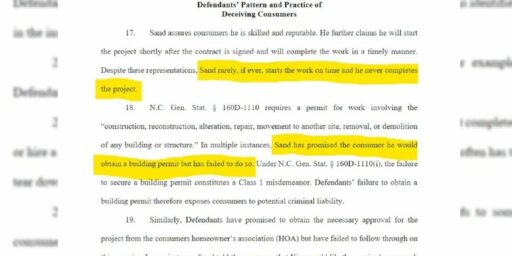Obtaining a general contractor license in Georgia requires a comprehensive understanding of state regulations, successful navigation through the application process, preparation for the licensing examination, and adherence to post-examination requirements. This guide provides a step-by-step approach to help aspiring contractors achieve licensure in Georgia, ensuring they meet all legal mandates to operate within the state.
Key Takeaways
- Georgia mandates licensing for certain contractor types, overseen by the Georgia Residential and General Contractors Board.
- The application process includes starting an online application, meeting educational and age criteria, and completing a background check.
- Preparation for the licensing exam involves understanding the exam format, content, and adopting effective study strategies.
- Post-examination steps require submitting proof of insurance and bonding, as well as completing real estate license requirements if applicable.
- Contractors must meet continuing education requirements and understand the renewal process to maintain and renew their license.
Understanding Georgia’s Contractor Licensing Requirements

State Legislation and Licensing Bodies
In Georgia, the process of obtaining a general contractor license is governed by state legislation, which sets forth the requirements and standards for licensure. The licensing bodies at the state level play a crucial role in ensuring compliance with these regulations.
The primary body responsible for overseeing the licensing of contractors in Georgia is the Georgia Residential and General Contractors Board. This entity is tasked with the administration of licenses, enforcement of laws pertaining to contractors, and the protection of the public by ensuring that licensed contractors meet the necessary qualifications and adhere to professional standards.
The journey to becoming a licensed general contractor in Georgia begins with a clear understanding of the state’s specific licensing requirements and the roles of the regulatory bodies involved.
It is essential for applicants to familiarize themselves with the various types of licenses available and to determine which license type aligns with their intended scope of work. The following list outlines the key types of contractor licenses in Georgia:
- Residential-Basic Contractor
- Residential-Light Commercial Contractor
- General Contractor (Limited Tier)
- General Contractor (Unlimited Tier)
Each license type has distinct qualifications and limitations, which are important to consider before beginning the application process.
Mandatory Licenses for Specific Contractor Types
In Georgia, state legislation requires that certain types of contractors must obtain a license to operate legally. This is a state-level mandate and is distinct from any city or county requirements. The Georgia Residential and General Contractors Board, which is part of the Professional Licensing Boards Division, oversees the licensing process. Contractors specializing in areas such as plumbing, electrical work, and HVAC must be particularly diligent in securing the appropriate licenses.
The following is a list of some contractor types that require mandatory licensing in Georgia:
- General Contractor License
- Glass & Glazing Specialty Contractor
- Home Inspector License
- Plumbing Contractor License
It is essential for contractors to understand that the absence of a valid license not only impedes legal practice but can also lead to significant fines and legal repercussions. Ensuring compliance with state licensing requirements is a critical step in establishing a legitimate construction business in Georgia.
Overview of the Georgia Residential and General Contractors Board
The Georgia Residential and General Contractors Board is a pivotal entity in the licensing process for contractors in Georgia. It operates under the Professional Licensing Boards Division and is responsible for ensuring that contractors meet the state’s legislative requirements. The Board’s oversight is crucial for maintaining professional standards and protecting public interests.
The Board’s composition is designed to reflect a balance of expertise and public representation. Appointed by the Governor and confirmed by the Senate, the six-member board includes five licensed real estate professionals with at least five years of experience and one member with a strong interest in consumer affairs, emphasizing consumer protection.
The Board not only oversees the licensing of contractors but also plays a role in enforcing real estate laws, further safeguarding the public.
To start the licensing process or to gather more information, contractors are directed to the GA Secretary of State website. Here, one can find a comprehensive guide to the licensing requirements, application procedures, and other pertinent details.
Navigating the Application Process for a General Contractor License

Starting Your Online License Application
Initiating the process of obtaining a Georgia General Contractor License begins with the online application. The online portal simplifies the submission of required documents and payment of fees. It’s essential to gather all necessary information before starting the application to ensure a smooth process.
To start your application, follow these steps:
- Register your business with the state’s Secretary of State.
- Complete the online license application form, including all personal and business details.
- Submit the Consent Form for a background check as mandated by the Georgia Residential and General Contractors Board.
- Pay the application fee and any other associated costs.
Remember, the application will not be processed until all steps are completed and all required documents are submitted.
After submitting your application, you will need to wait for approval, which can vary in time. Stay patient and be prepared to provide additional information if requested by the licensing board.
Meeting the Educational and Age Requirements
In Georgia, becoming a licensed general contractor involves meeting specific educational and age prerequisites. Applicants must be at least 18 years old and possess a high school diploma or GED as a minimum educational requirement. Additionally, a certain level of formal education or equivalent experience in the construction field is often expected.
For those looking to enhance their qualifications, Georgia offers various technical courses and certification programs. These programs are designed to provide the necessary knowledge and skills required for the licensing exam and subsequent professional practice.
It is crucial for applicants to verify their educational credentials and ensure they align with the state’s requirements. Failure to meet these standards could result in delays or denial of the license application.
Prospective contractors should also be aware of the continuing education requirements for license renewal. This ongoing learning is essential to maintain a valid license and stay updated with industry standards and regulations.
Completing the Background Check Procedure
Once you’ve met the educational and age prerequisites, the next step in securing your general contractor license in Georgia is to complete a thorough background check. This process is crucial to ensure that all candidates meet the state’s standards for integrity and reliability in the construction industry.
- Ensure you have all necessary personal identification documents ready.
- Submit your fingerprints for a state and federal criminal history check.
- Await the results, which are typically processed within a few weeks.
The background check is a pivotal step in the licensing journey, serving as a gatekeeper for entry into the professional community of general contractors.
Remember, the licensing process is considered complete only after a clean background check. The entire procedure, from application to license issuance, generally spans around 30 days, although this can vary based on individual circumstances.
Preparing for and Passing the Licensing Examination

Studying for the Georgia Contractor License Exam
Preparing for the Georgia contractor license exam requires a strategic approach to studying. Utilizing various study tools can significantly enhance your understanding and retention of the necessary information. One effective method is to engage with interactive resources such as Quizlet, where you can find flashcards tailored to the exam’s content, including topics like septic tank sizing and minimum requirements.
Another key strategy is to take advantage of practice exams, which can provide a realistic simulation of the test environment. These exams often cover state-specific license laws and are designed to mirror the actual exam format. By regularly testing your knowledge, you can identify areas that need further review and build confidence in your ability to pass the state portion of the exam.
It’s essential to focus on the topics that are frequently featured in the exam questions. This targeted study will ensure that you are well-prepared for the types of questions you will encounter.
Remember, success on the exam is not just about memorizing facts; it’s about understanding the principles behind them. Make sure to allocate sufficient time for study and review, allowing the material to be fully absorbed.
Understanding the Exam Format and Content
The Georgia contractor license exam is a critical step in obtaining your license. Understanding the format and content of the exam is essential for effective preparation. The exam typically consists of multiple-choice questions that simulate real-world scenarios you may encounter as a contractor.
To ensure a comprehensive understanding, the exam covers a wide range of topics, including code books, legal code, and other specific state requirements. Here’s a brief overview of what to expect:
- Real-World Simulation: Questions designed to prepare you for the actual testing environment.
- Tailor-Made Content: Customized to Georgia’s specific licensing requirements.
- Expert-Designed Questions: Crafted to enhance learning and retention of key concepts.
- Extensive Question Bank: Ranging from 150 to 3,000 questions to ensure thorough preparation.
Preparing with resources like ContractorTests.com can provide a study experience that aligns with the high standards of the exam. Practice tests are created by professionals with in-depth knowledge of the exam structure and are designed to exceed the level of difficulty you’ll face on the actual test day.
Tips for Success on Examination Day
On the day of your Georgia contractor license exam, it’s crucial to approach the test with a clear strategy. Arrive early to the testing center to allow yourself ample time to settle in and reduce any last-minute stress. Ensure you have all the necessary materials, such as a valid ID, admission notice, and any allowed reference materials.
- Review key concepts and formulas one last time, but avoid cramming.
- Read each question carefully and manage your time wisely.
- If unsure about a question, mark it and return to it after answering the ones you know.
Remember, confidence is key. Trust in the preparation you’ve done and stay calm throughout the exam. The passing score for most states, including Georgia, typically ranges from 70-80%. Aim to surpass this threshold to secure your license.
While the exam is comprehensive, it’s designed to be a fair assessment of your knowledge. Focus on demonstrating what you’ve learned rather than striving for perfection. With the right mindset and preparation, you can pass the exam and move one step closer to becoming a licensed general contractor in Georgia.
Finalizing Your License: Post-Examination Steps

Submitting Proof of Insurance and Bonding
After passing the licensing examination, general contractors in Georgia must submit proof of insurance and bonding to comply with state regulations. Securing a contractor license bond is a critical step in demonstrating financial responsibility and protecting the interests of clients. The bond acts as a safeguard, ensuring that contractors adhere to the terms of their license and the standards of their work.
To obtain a contractor license bond, you can contact a surety bond provider. Providers typically offer a range of options to accommodate different credit profiles, including programs for those with low credit. It’s important to compare quotes and terms from multiple providers to find the best rate for your bond.
Remember, the bond must be maintained throughout the duration of your license to remain in good standing with the Georgia Residential and General Contractors Board.
Here are the steps to follow when securing your bond:
- Contact a surety bond provider.
- Verify your bond requirements with the state.
- Submit your application and receive a quote.
- If approved, pay the bond premium and receive your bond certificate.
- Submit the bond certificate along with your insurance proof to the state board.
Completing the Georgia Real Estate License Requirements
After passing the licensing examination for general contractors, it’s essential to meet the Georgia real estate license requirements if your work will involve real estate transactions. You must hold an active real estate license to list, sell, lease, or deal in real estate transactions in Georgia.
To obtain this license, the following steps should be completed:
- Must be 18 years or older.
- Complete a background check.
- Finish the required state-approved pre-licensing courses, totaling 75 credit hours.
- Pay the estimated total fees and license costs of $285/$340.
Remember, holding an active real estate license also entails completing 36 hours of Commission-approved continuing education every four years, including 3 hours on the topic of License Law.
Once these requirements are fulfilled, you can submit your application and await approval to ensure you are fully compliant with Georgia’s regulations for engaging in real estate activities as a general contractor.
Receiving Your General Contractor License
Once you have successfully passed the required examinations and fulfilled all other prerequisites, the final step in the licensing process is to receive your General Contractor License. This marks the beginning of your professional journey as a licensed contractor in Georgia.
After the Georgia Residential and General Contractors Board approves your application, you will be issued your license. It’s essential to keep this document updated and accessible, as you will need to present it when bidding for projects or when requested by clients or authorities.
Remember, obtaining your license is more than just a formality; it’s a testament to your qualifications and commitment to the industry.
To ensure a smooth transition into your new role, consider the following checklist:
- Register for your Tax Identification Number.
- Familiarize yourself with state business laws.
- Stay informed about continuing education requirements.
- Keep your insurance and bonding documents current.
Maintaining and Renewing Your Contractor License

Continuing Education Requirements
In Georgia, continuing education is a pivotal requirement for maintaining and renewing a general contractor license. This ongoing education ensures that contractors remain up-to-date with the latest building codes, construction techniques, and business practices.
To renew their license, contractors must complete a specified number of continuing education hours within a renewal period. The state mandates that all individuals with an active real estate license, which is often held by general contractors, complete 36 hours of Commission approved continuing education every four years. This includes a mandatory 3-hour course on License Law.
It is essential for contractors to keep track of their continuing education credits and renewal deadlines to avoid any lapses in licensure.
Failure to meet these educational requirements can result in penalties, including late fees or suspension of the license. Contractors should ensure they fulfill their educational obligations well before the renewal deadline.
The Renewal Process and Deadlines
Renewing your general contractor license in Georgia is a critical step to ensure your business remains compliant and operational. Keep track of expiration dates to avoid any lapse in licensure. It’s advisable to set reminders and begin the renewal process well in advance of the actual expiration date.
To renew your license, you’ll need to:
- Visit the Georgia state or local government website or consult the agency that issued your license for specific renewal requirements.
- Gather necessary documents, such as financial statements, annual reports, or proof of insurance.
- Submit the renewal application and pay any associated fees, which can typically be done online for convenience.
Ensuring that you have all the necessary documents prepared beforehand can significantly speed up the renewal process.
Remember, staying proactive about your license renewal can prevent unnecessary disruptions to your contracting business and help maintain your professional reputation.
Staying Informed on Changes in Legislation and Requirements
In the ever-evolving field of construction, staying abreast of legislative changes is crucial for maintaining a valid contractor license in Georgia. The Georgia Residential and General Contractors Board periodically updates regulations that can impact your licensing status and operational compliance.
To ensure you are always informed of the latest changes, consider the following steps:
- Regularly visit the official Georgia Secretary of State website for updates on contractor licensing.
- Subscribe to industry newsletters and bulletins that provide summaries of recent legislative changes.
- Join professional organizations that offer resources and advocacy on behalf of contractors.
- Attend continuing education courses that include updates on laws and regulations as part of their curriculum.
It is your responsibility as a licensed contractor to remain compliant with all current laws and regulations. Ignoring updates can lead to penalties, suspension, or even revocation of your license.
Remember, legislation such as the recent SB503 can have significant implications for your business practices. Keeping informed through reliable sources will help you adapt to changes and uphold the standards of your profession.
Conclusion
Navigating the process of obtaining a general contractor license in Georgia can be a complex journey, but with the right guidance, it is entirely achievable. This guide has walked you through the essential steps, from understanding the state’s licensing requirements to completing the necessary education and exams. Remember, holding a valid license not only ensures compliance with Georgia’s regulations but also establishes your credibility in the industry. As you embark on your career as a licensed contractor, stay informed about renewal processes and continuing education to maintain your license. With dedication and adherence to the guidelines, you’ll be well on your way to building a reputable and successful contracting business in Georgia.
Frequently Asked Questions
What are the mandatory licenses for contractors in Georgia?
In Georgia, state legislation requires certain contractors to be licensed by the State, including general contractors and specialty contractors like plumbers and electricians. This licensing is overseen by the Georgia Residential and General Contractors Board.
How do I start an online application for a general contractor license in Georgia?
To start an online license application, visit the Georgia Secretary of State website where you can access the application forms and detailed instructions for the licensing process.
What are the educational and age requirements for a general contractor license in Georgia?
Applicants for a general contractor license in Georgia must be at least 18 years old and meet certain educational requirements, which may include completing state-approved pre-licensing courses or having equivalent experience.
What does the background check for a contractor license in Georgia involve?
The background check procedure for obtaining a contractor license in Georgia involves a review of the applicant’s criminal history and may include fingerprinting to ensure the applicant meets the state’s standards for licensing.
How can I prepare for the Georgia contractor license exam?
To prepare for the exam, you should study the relevant materials, understand the exam format and content, and consider attending a prep course. It’s also important to get plenty of rest before the exam day.
What are the steps to maintain and renew a contractor license in Georgia?
To maintain and renew a contractor license in Georgia, you must meet continuing education requirements, submit renewal applications before deadlines, and stay informed on changes in legislation and industry standards.





